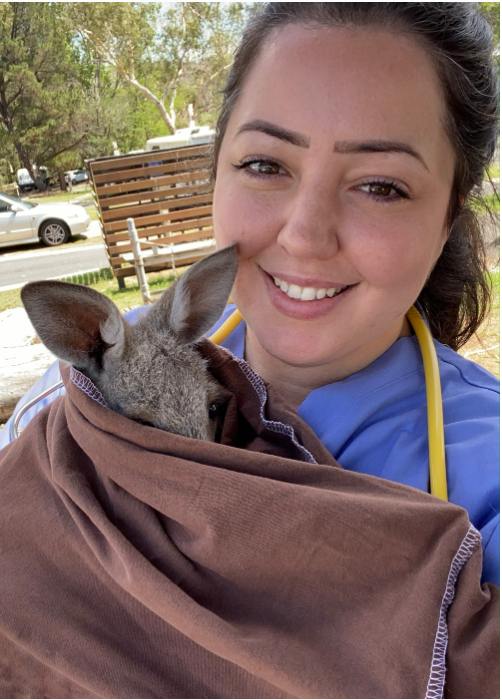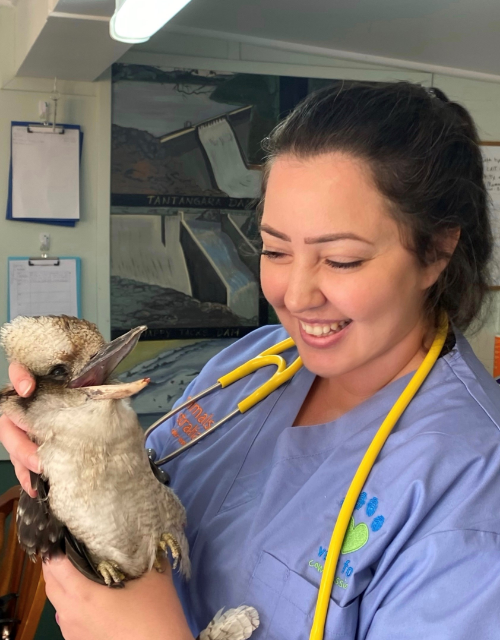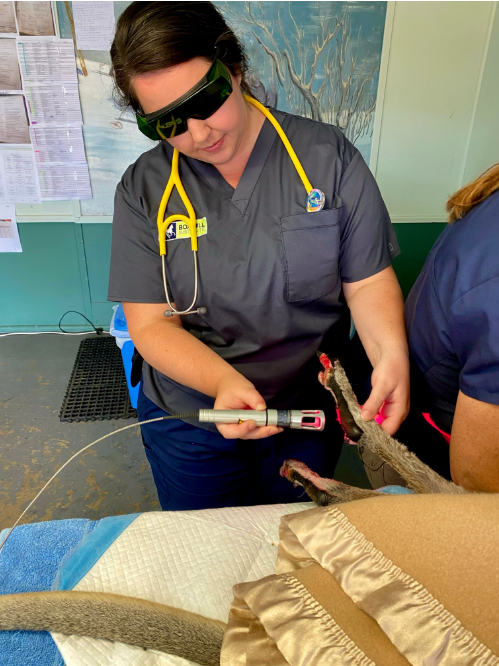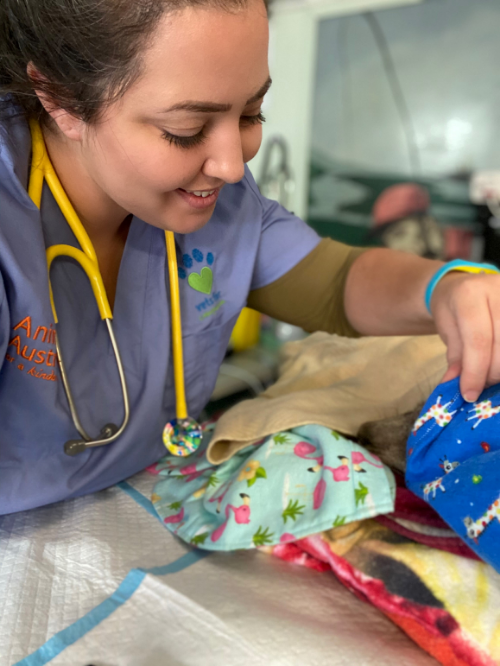News
Vet Nurse Volunteers for Bushfire Affected Wildlife
2020-03-20
Marcie Lash is a veterinary nursing teacher at Box Hill Institute with 13 years' experience working with animals and wildlife, specifically with burns and in disaster management.
After the recent bushfire crisis, Vets Beyond Borders AVERT (Australian Veterinary Emergency Rescue Team) began seeking volunteers to assist at its wildlife triage centre in Cooma, NSW. As a member of Vets Beyond Borders, Marcie knew she had to step in and help, and Box Hill Institute was able to provide her with community service leave.
Marcie said, "I am so grateful to Box Hill Institute for supporting me to provide my skills in Cooma. The teams were really responsive, including Robyn (Megna) and the HR Team to enable me to attend."
On Thursday 20 February, Marcie flew to Canberra. She said, "About 20 minutes of out Canberra, we could see the difference between the green areas and the black areas that had been burnt out."
The volunteers (all with veterinary science backgrounds) set up in a local caravan park, which had been cleared out to make way for the wildlife. The exercise was made possible through donations from public and organisations, which paid for setup, equipment, resources, people, and materials.
When Marcie arrived, the centre was just being established with a few rooms and limited supplies. Veterinarians, vet nurses and animal carers all worked together to treat the injured animals, which were suffering from a range of injuries including burns, smoke inhalation, infections and general displacement.
They worked on wallabies, kangaroos, koalas, birds and reptiles. Compared to other disaster recovery situations that Marcie has been involved in, this situation was diverse and the brief was unclear.
She said, "Anything that came to the centre, that was alive, needed to be treated. It's a confronting experience. You don't always have the normal tools to rely on. You have to look for other ways to treat your patient, sometimes using bush medicine."
The days could be up to 22 hrs long, with many support staff working through the night to support the animals coming in. "It's important for the animals to spend as little time as possible in captivity. Sometimes this meant working through the night to decrease the time the animals were sedated. We were also re-bandaging animals every 2 - 5 days," said Marcie.
Even in the makeshift triage environment, the teams made sure to follow full procedures and to conduct proper research and statistical analysis, including taking bloods for every animal to detect for disease and potential organ damage as well as microchipping to support further care if required.
Internationally renowned Veterinarian, Dr Jamie Peyton from UC Davis, specialises in burns and was sponsored to fly out from the US to Australia by Dr Michelle Oakley (Yukon Vet) to establish a protocol for the patients. It was a great learning experience for those in the triage clinic who were able to work alongside one of world's best experts. Marcie said, "Just by implementing her methods, we were able to reduce many of our patients' recovery times by 50% - 60%."
Reflecting on her experience, Marcie said, "Seeing the follow through for the animals returning to the wild and receiving the freedom that they need for their welfare is something very special. I left the centre feeling fulfilled and content that I had contributed to the survival of these animals, using the skills I have."



